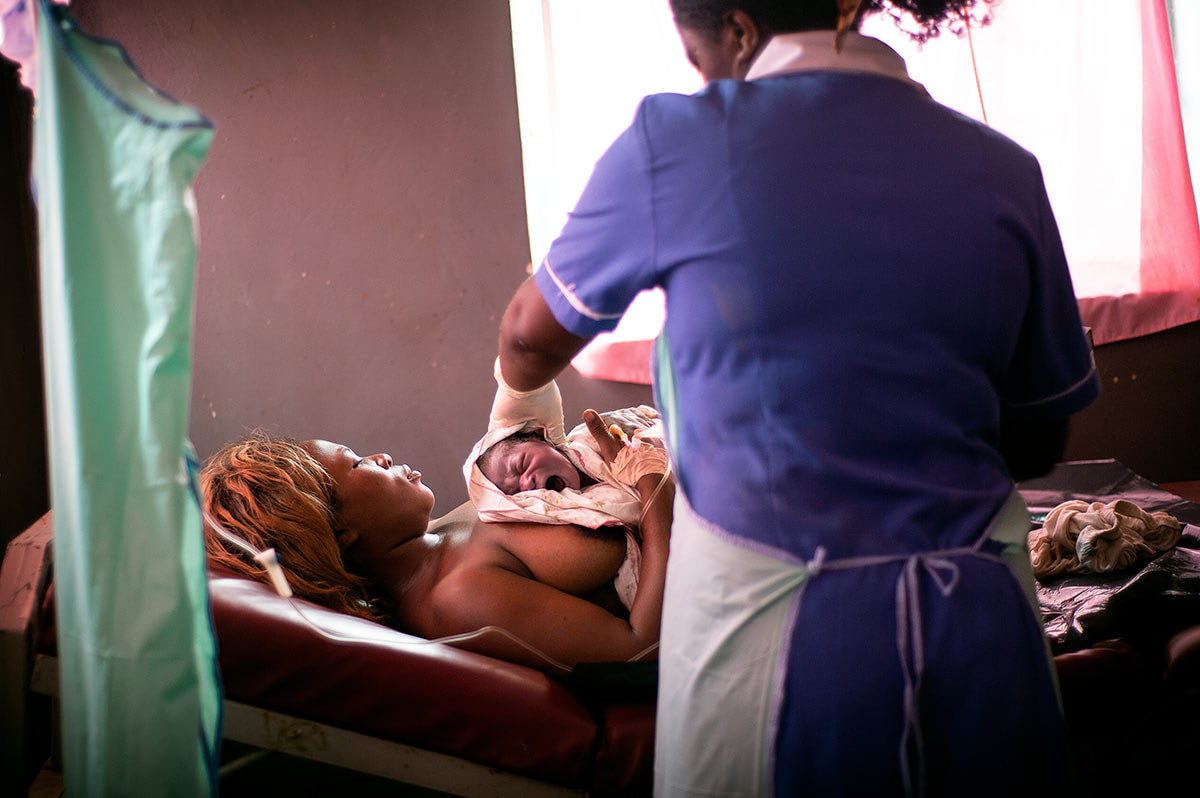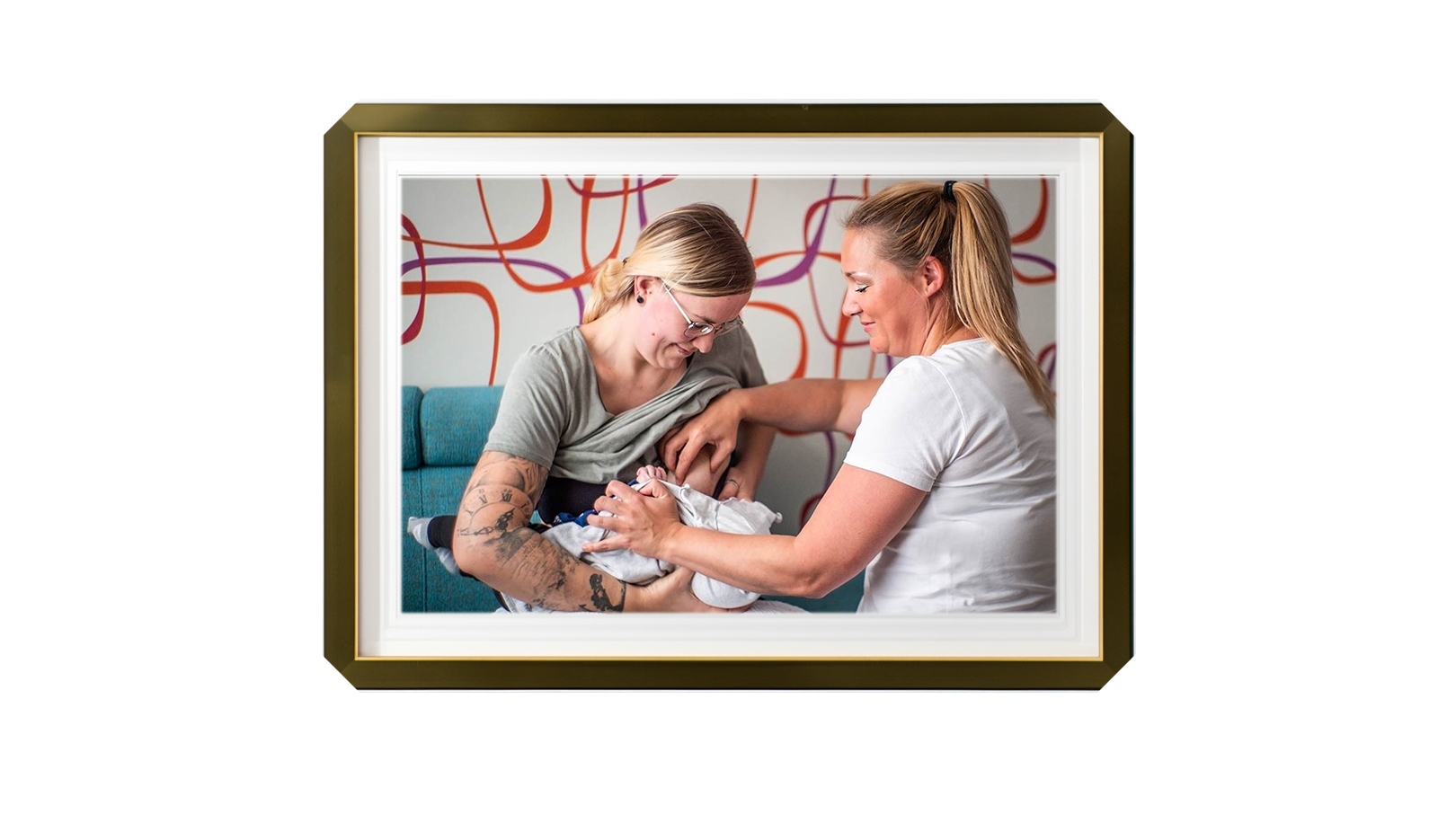Showing the indispensable work of frontline workers
No matter when or where they are born, babies can get off to a good start in life when their families are supported by frontline early childhood workers. Five photographers in different parts of the world have captured the indispensable work of an early childhood frontline worker: a midwife in Uganda, a paediatrician in Ukraine, an ASHA (Accredited Social Health Activist) worker in India, a home visitor in Peru, and a kraamverzorgster in the Netherlands.
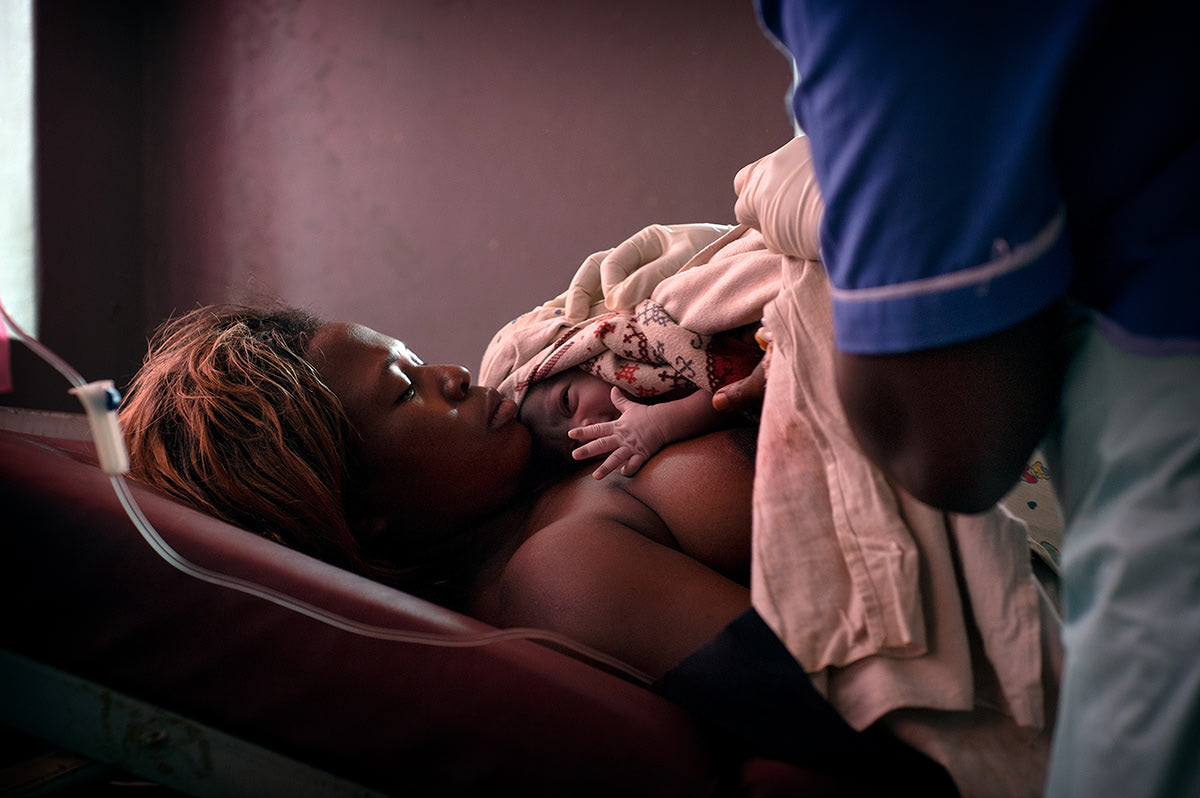
Photo: Courtesy of Will Boase/Bernard van Leer Foundation
Midwife Faith Atholere places Loice Biira’s newborn baby daughter on her chest immediately after the birth. Establishing a strong bond between mother and child is hugely important – and professionals like Faith can help from the very first moments of a baby’s life.
Photo: Will Boase / Bernard van Leer Foundation
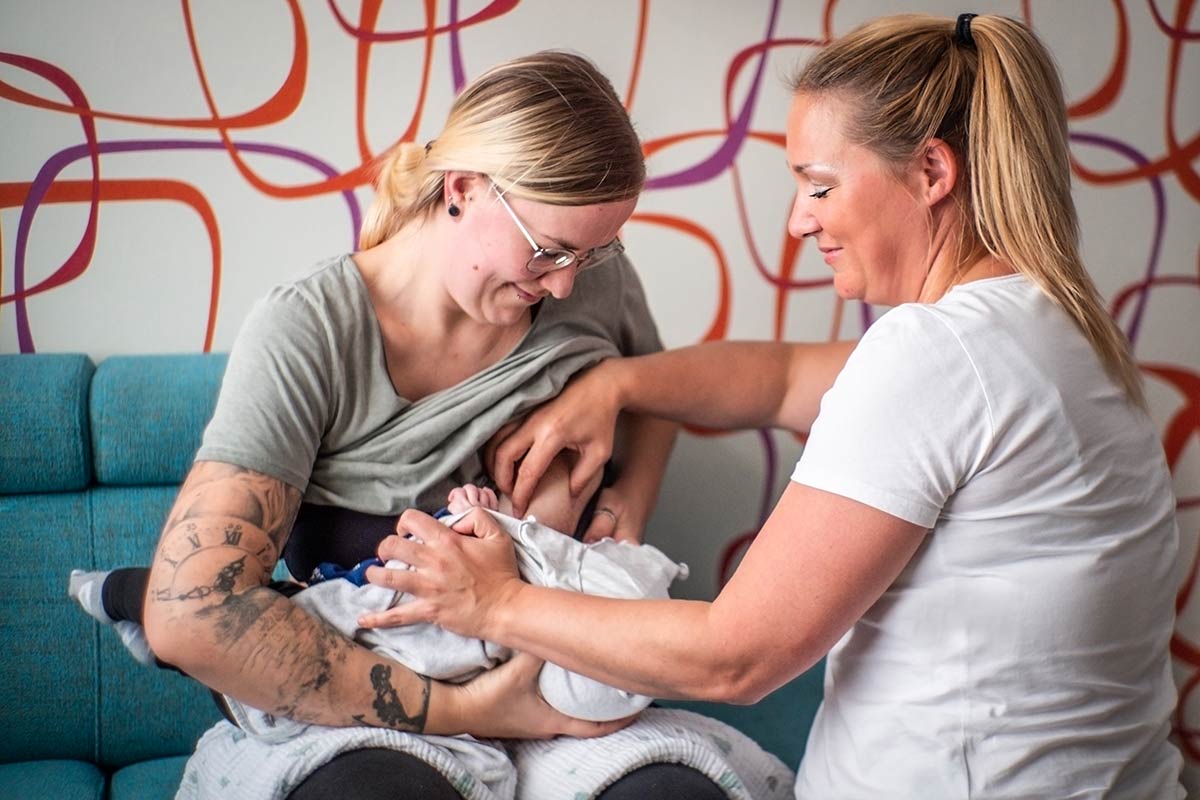
Photo: Courtesy of Anahí Clemens/Bernard van Leer Foundation
Kraamverzorgster (literally: maternity nurse) Kim Menning helps new mum Céline with her breastfeeding technique. Breastfeeding has many benefits – but if the baby struggles to latch onto the breast, the results can be stressful, frustrating and uncomfortable for mother and baby alike.

Photo: Courtesy of Trupal Pandya/Bernard van Leer Foundation
ASHA Sangita Rajkumari weighs a baby as part of a routine postnatal health check. These government workers provide basic community healthcare for populations who find it difficult to access health services. They can help to identify any problems with a child’s development at an early stage.
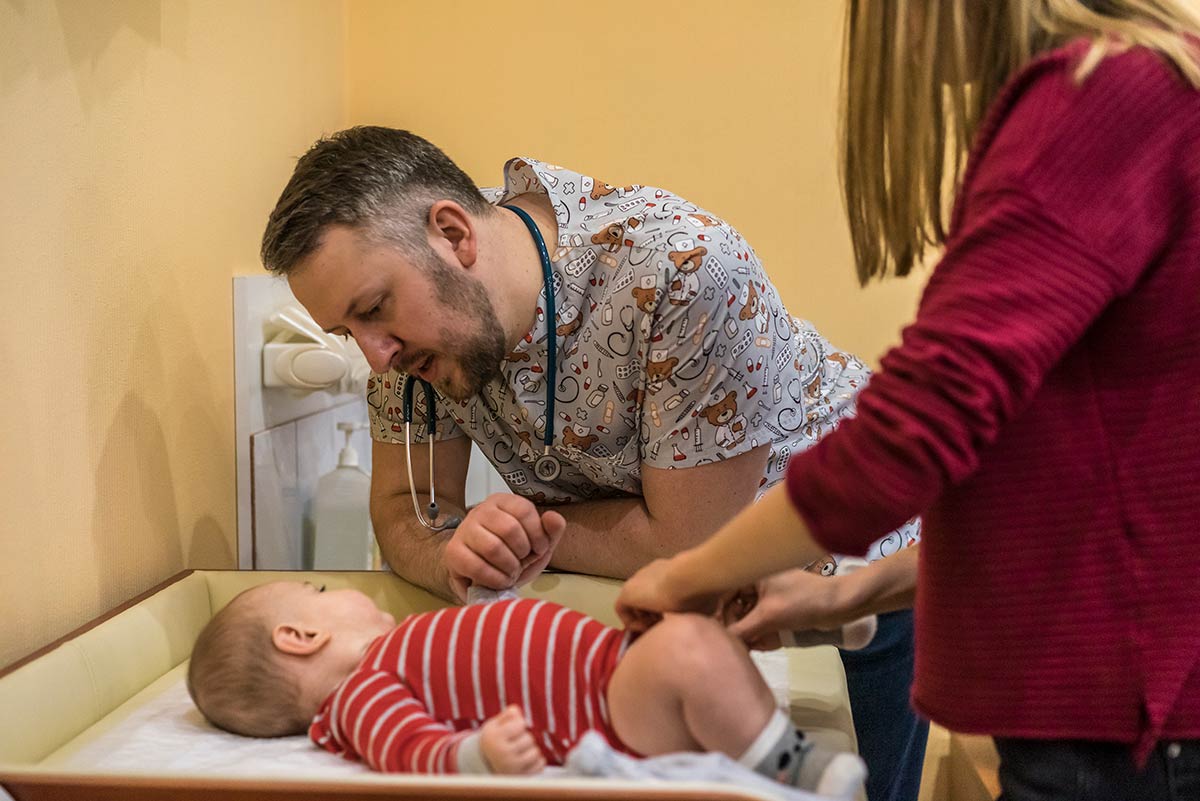
Photo: Courtesy of Brendan Hoffman/Bernard van Leer Foundation
Paediatrician Dr. Sergey Makarov finds that six-month-old Danil is healthy and developing well. It’s important not to rush these well-baby check-ups – by taking the time to get to know the family, health professionals can see where their support and advice may be needed.
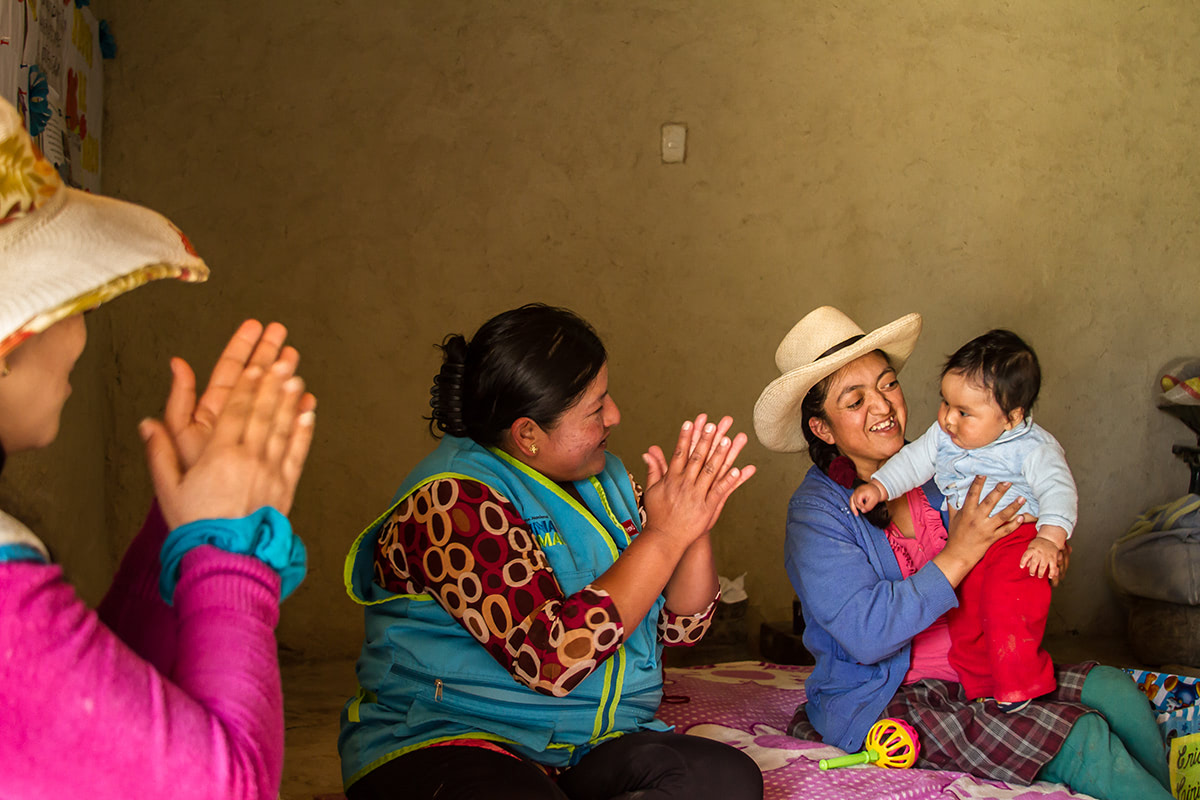
Photo: Courtesy of Vanessa Touzard/Bernard van Leer Foundation
Cristy Marilú Quispe Abanto claps and sings with one of the families she visits in her work for the Cuna Más home visiting programme. Talking, singing and playing with a child is great for their cognitive and emotional development – but parents can be shy about it until encouraged by an early childhood specialist.
